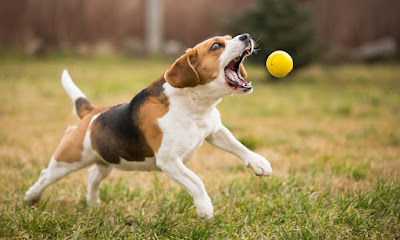There is an alarming number of dogs that suffer from separation anxiety, statistics show up to 14% is possible in the dog population. Not many dog owners understand what this condition is and when they try and fix the problem, they fall short because they have a different viewpoint to the cause and problem. The solution is quite simple on how to help a puppy with separation anxiety or a dog of any age. Establish that you are the pack leader and your dog will no longer be burdened with anxiety. Let me elaborate.
The first step in treating anxiety in your dog is to familiarise yourself with the behavior your dog is presently showing and if the behavior dissipates when you return? If this is the case, I can guarantee that not being present with your dog is directly linked to the cause. Now to look at the key puppy separation anxiety symptoms.
Chewing - Similar to when humans do it with gum, this releases endorphins (a chemical in the brain that makes you experience pleasure) that provide a calming sensation.
Excessive Barking, whining - This is what dogs use when they are trying to call their owners back to the pack, an example of this in a family would be if you were to call your children if you don't know they're whereabouts.
Escaping when you are not there - Often very destructive, extreme and sometimes dangerous. Your dog is looking for you. So many people are told to try and exercise the problem out of their dog but it will not solve the problem
Pulling the Houdini Act of Escaping when you're not home - Your dog is searching for you, this can often result in very destructive, extreme and sometimes dangerous behavior on behalf of the dog.
Digging, destruction - This is typical of a dog who is presenting stressful and anxious behavior
Self-harming - Chewing on themselves, licking excessively or drooling is a sign of stress and can be confused with medical conditions but are all related back to the dog being under immense stress.
Toileting - If you notice that your dog is toileting inside when normally they don't and you suspect it's a behavioral problem it's more than likely the case. If this only happens when you're away from your dog then this can be seen as key puppy separation anxiety signs.
Whilst there are lots of places that you can find advice on how to treat all these symptoms there is only one way to treat the cause of the problem. If you are serious about how to stop separation anxiety then you must become the pack leader.
There are many different sources of information on treating this condition but if you are serious about putting a stop to separation anxiety then you must become the pack leader.
The main cause for separation anxiety in puppies and dogs is they think they themselves are the pack leader and whenever you leave the house it's a member of their pack leaving! In the wild dogs tend to keep grouped together and will always make sure they are close by to each other. When you leave the house your dog's anxiety will return, however, if you establish yourself as the pack leader you will find your dog is completely calm and fine with you coming and going as you please.
Source:http://ezinearticles.com/?How-to-Prevent-Dog-and-Puppy-Separation-Anxiety&id=9305973































